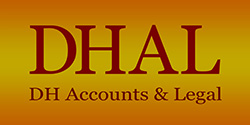VAT is one of the things all businesses need to be aware of. It’s important, for example, to understand what the VAT threshold is and when you need to register for VAT. It’s also important to consider what benefits you might get from registering even if you are below the threshold. Also you need to know who can not register for VAT. What is VAT Value Added Tax – the amount of tax added to the value of goods or services you buy. All VAT registered businesses must charge VAT on the goods or services they provide in the UK. A business which is registered for VAT will charge VAT […]
As a result of Automatic Enrolment, millions of people now have a workplace pension. Find out how this affects your business. Under the Pensions Act 2008, every employer in the UK must put certain staff into a pension scheme and contribute towards it. Employers will have to provide a workplace pension for eligible staff by 2018. This is called ‘automatic enrolment’. If you employ at least one person you are an employer and you have certain legal duties. It’s important that you understand what to do and by when, so you can meet your automatic enrolment duties. Staging date Find out when you’ll need to start enrolling people. This is […]
What you need to do to start a business in the UK, depends on your structure of business. Most businesses register as a sole trader, private limited company or partnership. Sole traders If you’re a sole trader, you run your own business as an individual and you’re self-employed. You can keep all your business profit after you’ve paid tax on it. You’re personally responsible for any losses your business makes. You must also follow certain rules on running and naming your business. Your responsibilities It’s simpler to start as a sole trader. You’ll need to: keep records of your business sales and expenses, send a Self Assessment tax return every […]
I will speak about two most popular types of business structures in the UK: sole trader (ST) and private limited company (LTD). Starting up as a sole trader is without doubt the simplest way to start a business in the UK. All you need to do is inform HMRC that you are working as self-employed, and report your business activities through the annual self assessment tax return. Setting up business as a LTD involves a more complex formation process, and the financial and administrative responsibilities of running a LTD are greater than those of a ST. However, there are many benefits which LTD has over the ST. Here are 10 […]
Signed work was done. You issued invoice and waited patiently for it to be paid as you have a right to it. But the payment deadline has passed and there’s no sign of your money. What next? 6 steps you can take dealing with late payments 1. Email reminder The customer must pay you within 30 days of getting your invoice or the goods or service. If the payment deadline has passed, send a follow up email within a few days with a copy of invoice attached. If you don’t get a response, send another. 2. First formal letter Write a first formal letter and enclose invoice or […]
This year Companies House introduces some important changes to UK company law. We have provided some of the key changes and the proposed implementation dates. New accounting regulations for companies - January 2016 The regulations apply to accounting periods beginning on or after 1 January 2016. The key change in these regulations is the removal of the ability for a small or medium-sized company to file abbreviated accounts at Companies House (although the very smallest companies can prepare micro entity accounts). New accounting standards - January 2016 The Financial Reporting Council (FRC) have revised the accounting standards under which UK companies prepare their accounts. More information about this change can […]
1. The National Minimum Wage will be increased to £7.20 per hour for those 25 or over. 2. The Personal Tax Allowance, the amount you can earn before paying income tax, will be increased from £10,600 to £11,000. 3. The Higher Rate Threshold will increase from £42,385 to £43,000. 4. The Employment Allowance will increase from £2,000 to £3,000. 5. To make it cheaper to employ young people, from April 2016 employers will not have to pay National Insurance contributions (NICs) for all but the highest earning apprentices aged under 25. 6. The new State Pension will be increased £119.30 from to £155.65 per week. 7. The income rise disregard […]






